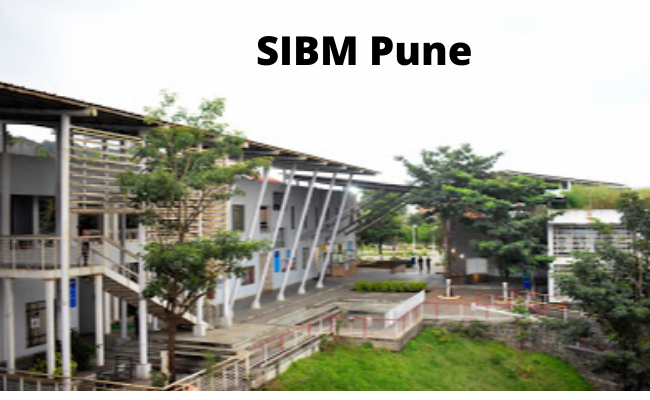When SIBM Pune held the ‘Art for Freedom,’ a nationwide initiative for gender justice, it attracted some of the most intriguing entries from across the country.
What is Art for Freedom?
Art for Freedom,part of the #DNAFightsRape–Save the Evidence, is a citizen awareness drive. They launched the drive on November 25th, 2019, the International Day for the Elimination of Violence Against Women. #DNAFightsRape–Save the Evidence aims to enlighten the public on their roles in saving vital DNA evidence in sexual offense & rape cases to ensure justice for the victims.
Several bodies like the Delhi Police, AIIMS, UN Women India, and Red FM had partnered with #DNAFightsRape–Save the Evidence. A considerable number of people have joined the forum, spreading the message:
“Do not Wash, Do not Clean. Save the Evidence”.
Art for Freedom aims to release the potential creativity has, change people’s perspectives on rape and sexual violence, and get people to make the culprits accountable and acknowledge the perpetrator’s culpability in the acts. The forum seeks to use DNA evidence that can help in proving the offender’s guilt using forensics.
Gordon Thomas Honeywell-GA & Ogilvy India, in partnership with UN Women India and Girl Up (UN Foundation), has initiated the forum partnering with the National Institute of Fashion Technology – Delhi and Symbiosis Institute Business Management – Pune.
How did the youth respond?
The National Head PR & Influence, Ogilvy India, Arneeta Vasudeva, praised the youth’s response to the call. She felt gratified at their heartfelt participation and the creativity they wielded in presenting their artworks. She was also pleased to see both sexes participating with equal zeal.
The forum invited entries in art forms like paintings, posters, animations, videos, poems, digital art, and rap songs. The competition worked on the theme of the need to stop victim shaming and blaming. The entries are on display on the Grand Virtual Art for Freedom Gallery.
The virtual event marked World Art Day 2021. The jury had shortlisted seventeen fantastic artworks!
The six winners include:
First prize: Devanshi Tripathi, a 20-yr-old Jaipur pursuing her law degree from the Faculty of Law, Delhi University. She shared her real-life experience and in a beautiful poem, ‘Bachpan.’
Second prize: Arpit Mishra, a first-year marketing student from SIBM Pune, composed a compelling video message. ·
Third prize: Prerna Ramesh, a lawyer, turned HR professional currently a student of SIBM Pune, who recited a poignant poem, ‘Alone.’ ·
Fourth prize: Prashansa Gupta, a first-year MBA student from SIBM Pune, screened an intriguing film emphasizing women issues. ·
Fifth prize: Vardha Anand, grade ‘X’ student of Springdales School, Delhi, and the youngest of all participants, who delineated a rape survivor’s ordeals and her right to justice in her painting.
Sixth prize: Santosh Kumar RB, an artist with global exposure, whore counted his gripping chronicle on justice for women through his series of three paintings
Some highlights:
Prerna Ramesh‘s winning entry began with a poem:
When she is sipping cocktails with her girlfriends,
When she is trying out cute outfits at the mall,
When she is waiting alone for dad to pick her up from school,
Leave her alone.
Prerna is a food blogger, a lawyer,and an HR professional,now studying at SIBM Pune. She said that she composed the poem from her experience in witnessing the ongoing practice of over-sexualizing women.
The society we live in accepts certain evils as norms:
- The uncomfortable, unnerving male gaze
- Objectifying women
- Victim shaming
Prerna said that women have tried to handle physical and verbal abuses in ways they think might work. Most women get conditioned to expect the worst and tend to:
- sit next to other women in a bus
- take the longer route if the short one seems sketchy
Arpit Mishra‘s video is a cogent and engaging satire on patriarchy. The presentation came from his experience with street theater. He said that he was constantly on the lookout for social issues that most people avoided. He used these themes in his plays to educate the audience on social issues. He felt appalled when people blamed the victim when he read about the incidents. He says that the stories of these victims inspired him to use the theme in his plays.
Prashansa Gupta‘s film highlighted women’s issues. She is intrigued by society’s interpretation of rape. People have termed rape as a ‘loss of the girl’s honor”, or protecting her from rape is “saving her honor”… Some people tend to exercise their power over their victims by raping them and get a sense of triumph in the act of rape. Her community shames girls who have lost their virginities. Using a word like “raping” for narrating a team’s victory is unacceptable.
Prashansa felt outraged as she realized how society indulges in the conditioning of victim shaming. Some people attributed rapes to political rivalries, land disputes during communal riots and wars. The skewed views extended further when she observed people advising women to cover themselves, not to provoke rapists. The practice nailed the coffin on the power dynamics of rape.
Stay connected with fellow students on PaGaLGuY for CAT Exam Discussion.
